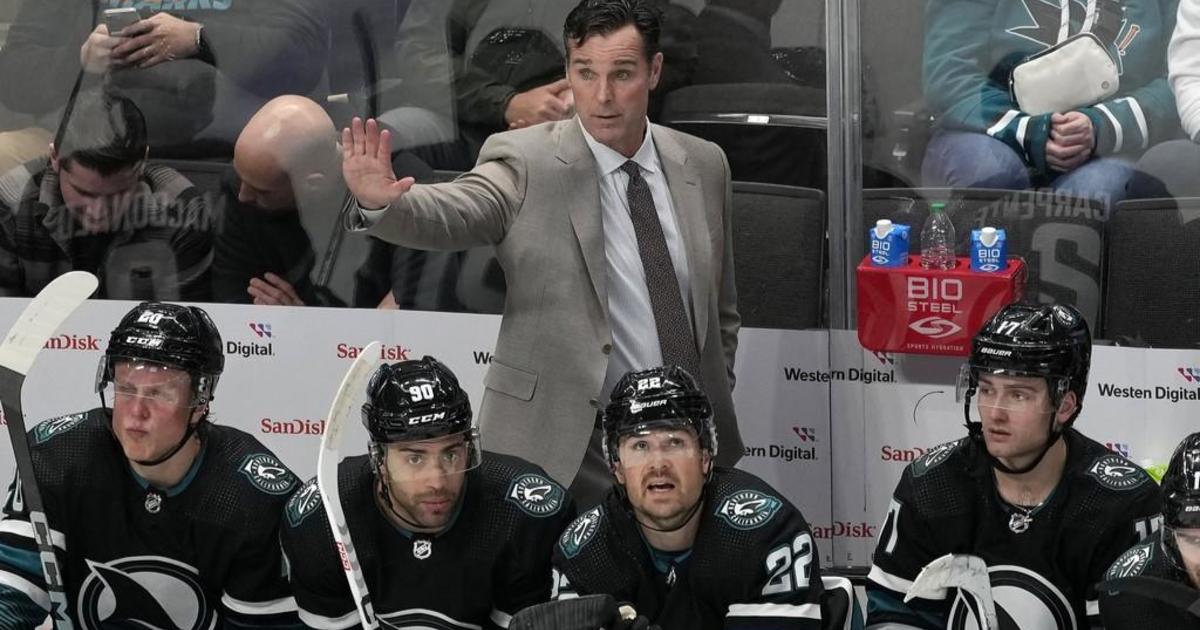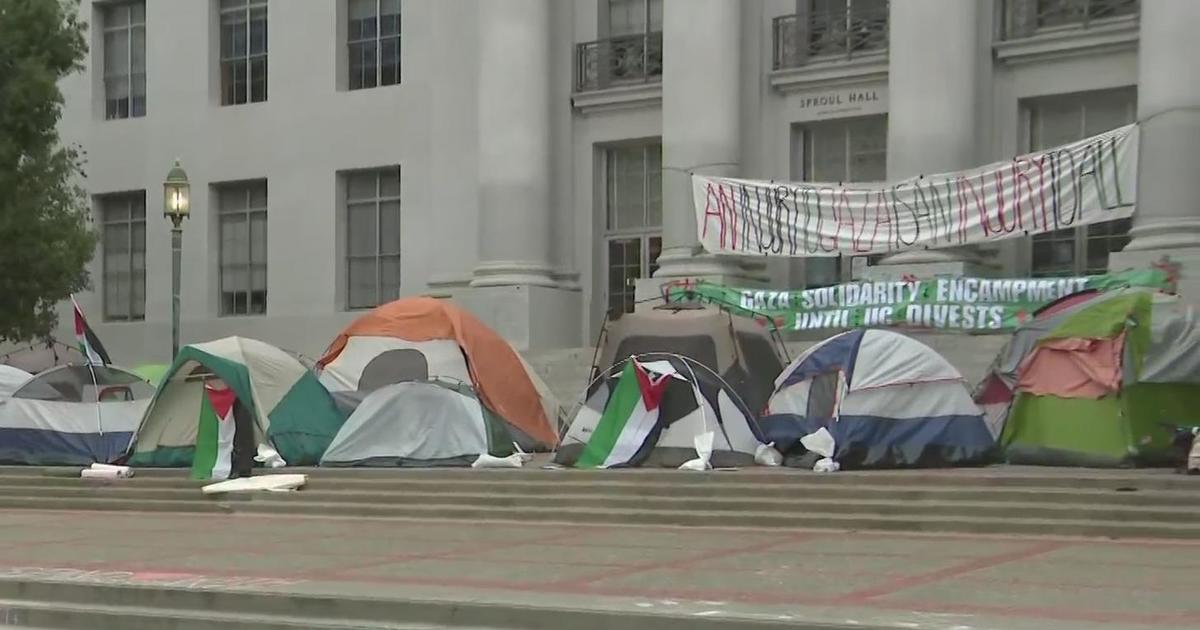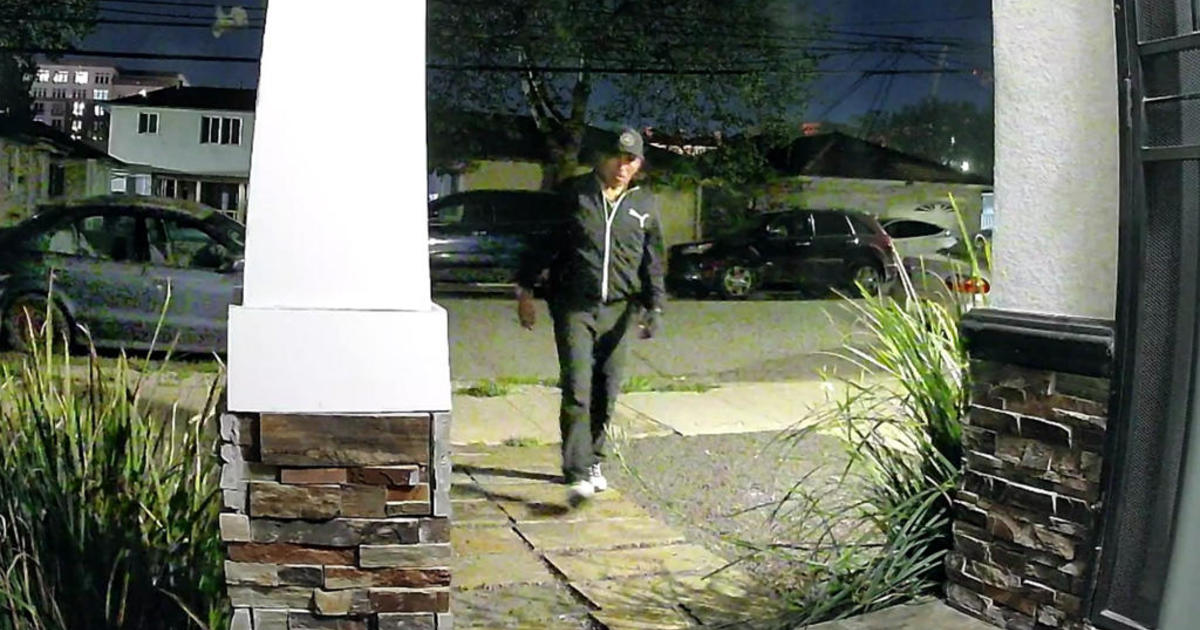Nigerian Immigrant Emerges From Challenging Childhood As Top Scholar
(KPIX 5) -- When Nchedo Ezeokoli stepped up to the stage at Stanford University commencement exercises last year, the professor reading her name paused for a moment when he came to her name before mispronouncing it. No worries - she grew up straddling two cultures - so she handled it graciously and moved on, accepting her diploma with a glowing smile.
Her name may be hard to pronounce, but what is crystal clear is her degree in Science, Technology and Society. "I have this piece of paper here that shows I have the knowledge and the skills to be able to contribute to society," she told us, "to be taken seriously; to be able to say that my background doesn't define me."
"She got into every single college she applied to," her Students Rising Above advisor, Dee Dee Romo, enthused. "She turned down Princeton. She turned down Harvard. Come on ... who does that?"
LEARN MORE: Students Rising Above
Nchedo's twin brother also graduated from Stanford and as their whole family stood together at the ceremony, the pride was evident.
They had come so far since they emigrated from Nigeria.
The twins were only three years old when their family came here. Census data shows that 37% of Nigerians coming to the U.S. have college degrees. Nchedo's father had a degree in business but in the Bay Area, he had to drive taxis to support a family of seven.
They lived in East Oakland, moved to Richmond at one point, then back to Oakland. Money was always a struggle, especially when her mom was injured in a car accident and couldn't work. "I thought there was a potential we could be homeless," Nchedo said. She remembers feeling "a mixture of despair and need … I saw that my family was struggling and I wanted to help."
So when she was 13 years old, Nchedo went to work to help pay the bills. She got a job selling magazines and trinkets several days a week for a company that used teenagers as door-to-door salespeople.
The kids had a sales pitch that explained they were earning money to keep them away from drugs and off the streets. "They would drive us to neighborhoods and drop us off and say, we'll come pick you up in X amount of hours," she explained. "I dreaded it. I didn't want to do it but I felt I had to, and it was scary. I was a young girl going door to door and sometimes it was night time."
Sometimes she would have a partner, but not always. "Anything could have happened to me and nobody would have known…"
At home, Nchedo took on a lot of responsibility with her younger siblings, especially after her mom's back injury. She would wake up in the night with the babies when they needed to be fed or changed. "She was responsible for cooking, cleaning, helping her siblings with their homework," added Romero.
The homework part is central to this story because in her home, education was the top priority, non-negotiable. "Our mom would kind of drill us with math problems," says Nchedo. "She'd make us practice our writing over and over again until we got it right.
So it's clear why Nchedo became a straight "A" student. "For that family, it was really about saving their lives," said Romo. "Education was really going to change their future; allow them the opportunity to find jobs so they could take care of themselves and not struggle."
The stakes were clear to Nchedo. "It was, 'you will do the best and you will be the best,'" she said. "It was that kind of expectation."
Nchedo has met that expectation every step of the way both at Middle College High School where she graduated on the top of her class and later at Stanford.
"I see myself in this area of global health and of international health," she said, and is particularly concerned with health issues around mothers and children in developing countries, particularly Africa. Being from Nigeria has given her a big picture view of world problems and bi-cultural sensitivities.
Her advisor believes Nchedo will make profound contributions. "I actually could see her living abroad and running programs to help these people in poor communities around the world," said Romo.
"There is more out there," said Nchedo. "And if I continue to work hard and do well in school, I'll get there."



